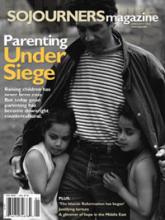Those of us living in the United States face the challenge of how to live and preach the full gospel, the prophetic message as preached by Jesus. How can we as churches move from consoling and pacifying messages to challenging ones? How can we move from caring solely for members of our own congregations to becoming communities of faith that work toward justice for all—toward the reign of God?
The story of Most Holy Name Parish in Lima, Peru, as told by Joe Nangle in Birth of a Church, is a challenging example of a maturing Christian’s attempt to implement the gospel vision of social justice in his own community of faith, as Marie Dennis writes in the book’s foreword. Nangle’s story of his parish “is an amazing gift—most relevant to the vocation of U.S. parishes in the context of a world still divided by violence and poverty, yet yearning for justice and peace,” she writes.
Like many of us who were missionaries to Latin America in the early 1960s, Nangle went to Lima as an unreflective proponent of a North American-style church and society. After 10 years of pastoring, he writes, he emerged a critical social analyst fully in touch with both Latin American realities and with the enormous influence of the United States on these realities.
When we missionaries arrived we found that the church in Latin America was biased in favor of the wealthy. When Nangle and his Franciscan brothers began work among the upper middle class in Most Holy Name Parish in 1964, they were initially very popular. During their first four years, their outreach ministries and building projects, such as a school for the poor, were garnering acclaim inside and outside the parish. But those programs addressed the symptoms rather than the causes of poverty.
Read the Full Article
